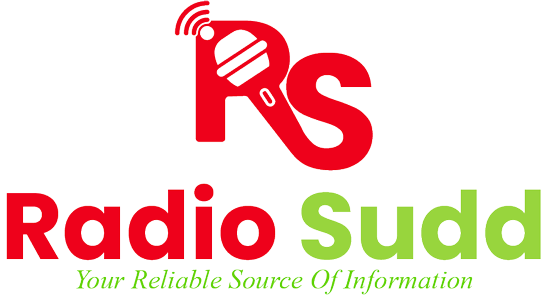By Jacob Bol Mayar Anai
In Bor, the capital of Jonglei State, garbage isn’t just piling up—it’s putting lives at risk. Streets are clogged with plastic bottles, burned wrappers, and rotting waste. And when the rains come, the situation gets worse.
The town’s drainage system barely works. Roads flood. Trash floats. And the few trucks the municipal council has can’t keep up. They manage to collect about three truckloads of waste each month—but that’s nowhere near enough.
At Marol Market, Rebecca Angeth Maluk stands behind her vegetable stall, surrounded by puddles and stray animals.
“For me, selling vegetables isn’t just a job—it’s how I feed my family,” she says. “But on rainy days like this, it’s really hard. Dogs and pigs roam around, and that puts our health at risk.”
Rebecca has seen cholera outbreaks sweep through the market. She believes it’s only by God’s grace—and the prayers of concerned citizens—that she and others have stayed safe.
To cope, she and other vendors have built raised tables to keep their produce dry. They’ve filled in low spots to reduce flooding. These aren’t government projects—they’re community solutions.
Rebecca is also calling on the government to do more.
“We need proper bins for soda bottles and other waste,” she says. “But the government is struggling. They don’t even have enough vehicles to move the garbage.”
Her message is simple: Help us help ourselves. With better support, local efforts could go even further.
John Makuei Alier, Deputy Director of Public Health at the Municipal Council, explains the challenge.
“The roads are terrible, especially during the rainy season. Last time we tried, a truck overturned on a flooded street. It’s extremely hard to remove plastic bags and bottles under these conditions.”
He says the health department is working with the council to assess the risks. Cholera and malaria are on the rise and the link to poor sanitation is clear.
Kenyi Mach, Communications Officer at the Jonglei Women Association, sees the impact every day.
“Uncollected waste leads to stagnant water. That’s where mosquitoes breed—and they spread malaria. Children and pregnant women are especially vulnerable,” she says.
Kenyi has witnessed tragic outcomes, including a death linked to pinworm infections. She’s urging local authorities to launch hygiene awareness campaigns—especially in communities that don’t know how to handle waste safely.
Dr. Ajak Garang Akech, a private doctor in Bor, is deeply concerned about how medical waste is being handled.
“Used bandages, gloves, and protective gear are being dumped carelessly,” he warns. “This puts women, children, and even livestock at risk.”
He’s especially alarmed by reports that cattle keepers are reusing discarded syringes to medicate animals—a dangerous habit that could spread diseases from animals to humans.
“Proper disposal isn’t just about rules—it’s a moral responsibility,” Dr. Ajak says. He’s calling for strict laws and better enforcement, especially at state hospitals. He recommends safe methods like incineration, chemical disinfection, or autoclaving.
Michael Gatchang, Director General of the Ministry of Agriculture, Environment, and Forestry, says there’s hope.
“We’ve drafted a new environmental bill with tougher rules on waste disposal,” he says. “But it’s still waiting for approval from the Council of Ministers.”
In the meantime, his ministry is working with the municipal council and the Ministry of Health to tackle the crisis.
Editor’s Note: “This story is reported with a grant from Journalists for Human Rights under the ‘Tackling Mis/Disinformation Project,’ funded by the Peace and Stabilization Program of the Government of Canada.”
